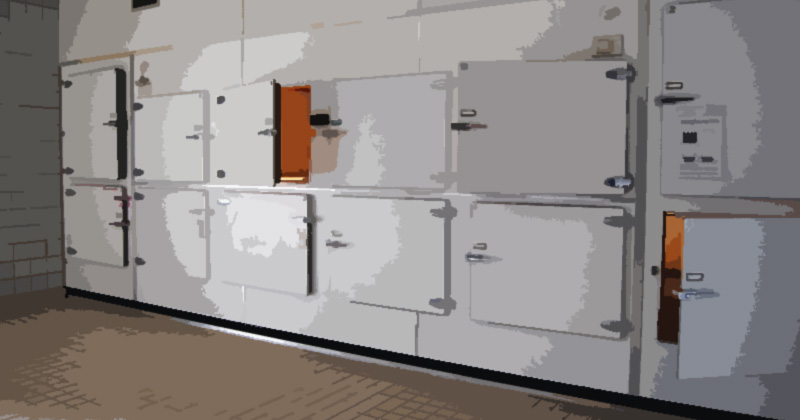We all know that dead bodies can become bloated, but few of us understand why.
Understanding the answer requires a quick lesson on the things that stop us from decomposing while we’re alive: Living people maintain internal balance (“homeostasis”) by regulating body temperature, pH levels, and complex hormones.
Simultaneously, the immune system works around the clock to detect and combat pathogens like viruses, bacteria, and fungi. All the while, we continuously get oxygen and nutrients as we breathe and eat.
Dead bodies are bloated due to gasses like methane released by bacteria during the process of decomposition. These gasses accumulate in the abdomen and other internal cavities in the human body. Death causes the complex processes preventing this bloating from occurring when we are alive to “stop”.
Of course, that’s the simple answer – and there’s a little more to it. Read on to learn more.
In This Article
Human Decomposition: An Overview
Fully understanding why dead bodies bloat requires an understanding of human decomposition generally.
Decomposition begins immediately after someone dies (Warning: Shocking images). It is the process of decay that will eventually render a body indistinguishable from the rest of nature.
Human decomposition has a number of stages (I’ve written about them more extensively here), but here’s a summary:
The Fresh Stage
The fresh stage typically covers the first 24 to 48 hours during death. Important processes that unfold during this stage include:
- Autolysis, also called self-digestion. Dead bodies are unable to process waste, and an acidic environment forms. Cell membranes rupture, releasing enzymes that then proceed to consume the cells.
- Pallor mortis. As blood stops circulating, the body becomes pale.
- Rigor mortis. The body becomes “stiff”.
When a loved one dies at home, in a hospice, or hospital, medical staff and professionals from the funeral industry typically get involved during this stage.

Hospitals typically have mortuaries where a deceased’s remains can be cooled, delaying progression to the next stage: Bloat.
The Bloat Stage
Bloating is the second stage of decomposition, it typically starts 4 to 10 days after death.
The enzymes released from the cells during the fresh stage and the bacteria the immune system no longer holds back begin producing gasses like methane and hydrogen sulfide.
A body can swell to twice its former size during this stage, as gasses fill the internal cavities.
Active Decay and Skeletonization
This third stage transforms the body further as new (often anaerobic) bacteria take over. Liquefaction, which is basically precisely what it sounds like, causes organs to slowly degrade and disappear.
This process can take years to complete, but it may also advance quickly in hot and humid conditions.
Skeletonization is the stage of decomposition at which the skeleton becomes visible. Eventually, just the bones are left.
So, Why Are Dead Bodies Bloated?
The focus is on the processes that occur during the first two stages of decomposition: The fresh stage and the bloat stage.
Dead bodies become bloated because a variety of bacteria start breaking the body down immediately after death. The cell membranes rupture, starting a self-digestion process. Both these factors release various gasses that fill the body’s internal cavities, causing bloating.
Methane, the same gas that plays a major role in causing bloating and flatulence while we are alive, is one of these gasses.
The rate at which a body starts bloating depends on a wide variety of factors, including the temperature, humidity rate, presence of bacteria, and even if the deceased had wounds on death.
How Do Morticians Minimize Bloat?

Viewings are common at modern funerals — and people who have attended their fair share of funeral services know that their loved ones’ remains are generally in good condition at this time.
While some minor bloating might be visible (for example, see the very minor bloating in the ankles of Aretha Franklin in the image above) – it’s not usually anything major – how is this the case?
Embalming
Embalming preserves a dead body by introducing chemicals such as formaldehyde and removing blood.

The gasses responsible for bloat are, in some cases, removed in a process called degassing, and a chemical mix called “cavity fluid” keeps the body in good condition.
Funeral home staff also use makeup and position the body in the best possible way to allow loved ones to say goodbye in a dignified manner.
Refrigeration is also used to delay decomposition by preventing bacterial colonies from growing, preserving the body very well until the funeral can be held.
Embalming continues to slow decomposition down after the funeral, but it can never stop decomposition from occurring. In the end, we’re all destined to return to nature.










